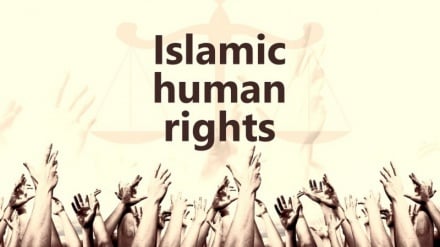Islamic Human Rights (19)
Welcome to the 19th weekly episode of the series Islamic Human Rights. In this episode, we speak of the importance and significance of the right of existence in the divine religion of Islam.
Last week we mentioned that the divine religion of Islam attaches significant importance to the right of existence of human beings, and negates suicide and murder. Holy Quran has put emphasis on the lives of innocent people. This importance and value is to an extent that the murder of an innocent human being has been considered as tantamount to murder of all people. Holy Quran has strongly forbidden the faithful from commitment of the major sin of intentional murder of an innocent man.
The 32nd ayah of Surat al-Ma’idah in Holy Quran notes: “…whoever kills a soul, without its being guilty of manslaughter or corruption on the earth, is as though he had killed all mankind, and whoever saves a life is as though he had saved all mankind…”
Now, one should find out why commitment of suicide or murder is prohibited. Firstly, it should be said that even angels, at the beginning of creation of mankind, termed bloodshed as a misdeed. According to ayahs of Holy Quran, when God created mankind, angels told God: Will You set in Earth someone who will cause corruption in it, and shed blood. God in response to angels pointed out: ‘Indeed I know what you do not know.’
From this dialog it could be concluded that if the basis of the remarks of angels was not right, God would not accept them. However, the tacit approval by God shows that angels were right to believe that bloodshed is an ugly deed. In later eras, manifestations of this approval could also be observed. For instance, one of the pledges that God got from Israelites was avoidance of bloodshed. God in the 84th ayah of Surat al-Baqarah notes: “And when We took a pledge from you: “You shall not shed your own people’s blood,…”
Prohibition of murder is one of the first instructions that the Prophet of Islam, Mohammad (Blessings of God upon him and his progeny) brought about for the idolaters of Hejaz.
The 151st ayah of Surat al-An’am in Holy Quran notes: “Say, ‘Come, I will recount what your Lord has forbidden you from. That you shall not ascribe any partners to Him, and you shall be good to the parents, you shall not kill your children due to penury…and you shall not kill a soul whose life Allah has made inviolable, except with due cause. This is what He has enjoined upon you so that you may apply reason.”
Avoidance of bloodshed is of such an importance that God has named avoidance of commitment of murder as one of the characteristic traits of servants of God.
68th ayah of Surat al-Furqan in Holy Quran notes: “Those who do not kill a soul whose life Allah has made inviolable, except with due cause, and do not commit fornication…”
Respect for mankind is a commonalty among all divine religions and human rules and regulations, and murder is named as one of the biggest crimes and sins in them. In the view of divine religion of Islam, lives of people are respected and only God is rightful to take lives.
When an innocent individual is killed, the right of existence is taken from him, and he is denied of his main right. Murder of an innocent individual induces several personal and social destructive impacts. Hence, Islam totally negates murder of innocent people.
The murder of an innocent individual, leaves his associates, especially his spouse, children, parents, and siblings in a heavy shock and deals a blow against his family life. The spouse and children of the victim may thereafter grapple with several woes and hardships and be misguided.
The divine religion of Islam as the last messenger of honor and security has considered heavy punishments in the material world and Hereafter for murderers; saboteurs of security; and aggressors against the lives and belongings of innocent people.
God has considered a heavy punishment for murderers, which in turn is one of the main reasons behind forbiddance of murder. These punishments are material and spiritual punitive measures, both. The material punishments include payment of blood money and retribution; each of which maintain a set of conditions. However, the punishment of murderers includes non-material punishment, too.
God in the 93rd ayah of Surat al-Nisa in Holy Quran notes: “Should anyone kill a believer intentionally, his requital shall be hell, to remain in it forever; Allah shall be wrathful at him and curse him and He shall prepare for him a great punishment.”
The first punishment of a murder is to go to hell and the second punishment is to remain in it forever.
The third punishment of the murderer is that God is wrathful at him from the very moment he commits murder until the last day of his life. The 4th punishment of a murderer is refusal of divine blessings for him. And the 5th punishment of a murderer is the major suffering that God descends upon him.
The Prophet of Islam treasured the life of mankind and strongly opposed and negated murder and bloodshed. He also negated the murder of non-Muslims.
Meanwhile, there are times in which respect for human life is lifted. This is the case in regard to those, who commit murder or a similar sin.
Moreover, the denial of other’s spiritual life is also punishable. Those, who misguide others and promote misconceptions should repent. But, this repent is only accepted when the repentant would make amends to all of his destructive thoughts and would clarify and promote the truth.
The divine religion of Islam considers existence as a right and duty, and has considered two material and spiritual aspects for it, while prioritizing the spiritual aspect. The sacred religion of Islam has also set a number of punishments for those, who violate this right and duty.


